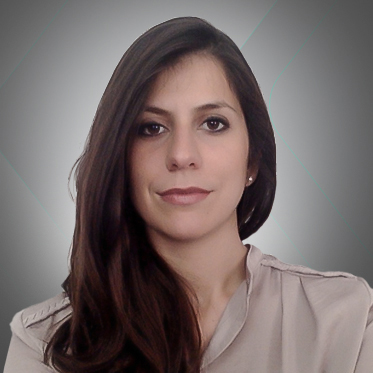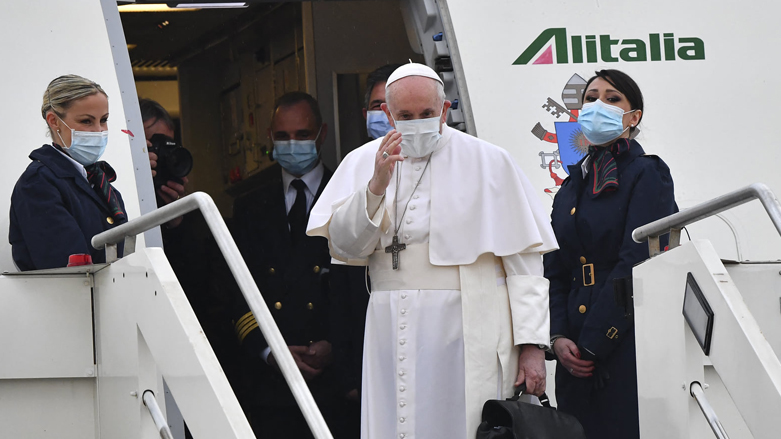
Peri-Khan Aqrawi-Whitcomb
Editor
Pope Francis, his links to Kurds, the region and a mission of peace with Islam

By Peri-Khan Aqrawi-Whitcomb
Pope Francis is due to visit Iraq and the Kurdistan Region this week, probably the most anticipated and unprecedented historical event in the region for decades. Predecessors like John Paul II in 2000, had tried to visit Iraq before, especially the city of Ur, to honor Abraham, the father of the three biggest monotheistic religions, Judaism, Christianity and Islam. However, decades of wars and conflict did not permit it.
Pope Francis was born Jorge Mario Bergoglio on December 17, 1936 to Italian immigrants in Buenos Aires, Argentina. He is the first pope from the Western Hemisphere, the first from South America, and the first from the Jesuit order.
When Bergoglio was elected leader of the Catholic Church in March 2013, he could have chosen from a long list of popular pope names like Benedict, or John Paul, but unlike his predecessors he chose a name of a man that was never used by a pope before, though it still belongs to one of the most prominent religious figures of all time: Francis of Assisi.
According to Pope Francis, he chose St. Francis as he was “the man of poverty, the man of peace, the man who loved and protected creation.”
St. Francis of Assisi is the Catholic patron saint of animals and the environment. His devotion to God was expressed through his love for all of God's creation. In the 12th Century Francis cared for the poor and sick, and he preached sermons to animals and praised all creatures as brothers and sisters under God.
After living a rich youth and serving briefly as a soldier, Francis went through a spiritual experience that inspired him to renounce his family’s wealth and devote his life fully to God. His dedication to poverty, humility, obedience, patience and compassion soon attracted many followers. In 1209, with the permission from Pope Innocent III, he formed a new religious order known as the Friars Minor, now called the Franciscans.
But St. Francis was more than that. He was also a man who made peace his worldly mission, using his extraordinary diplomacy skills to build bridges between different religions and cultures, especially between Islam and Christianity. His unwavering commitment to peace led him as far as to seek the end of the Crusades, which he struggled to see as God’s plan.
Most striking of all, many people are not familiar with his meeting with the Islamic leader Sultan Malik al-Kamil of Egypt, who was of Kurdish descent. An outstanding book published in 2019 called “The Saint and the Sultan” by Paul Moses reveals forgotten historical facts that carefully depict the journey of Francis of Assisi on a mission of peace with Islam.
In 1219, during the Fifth Crusade, St. Francis single-handedly crossed enemy lines to successfully arrange a meeting with the Sultan of Egypt. After initial mistrust, the sultan agreed to receive Francis and both exchanged their views on peace, co-existence, faith and war. Feeling confident in the results of the meeting, Francis returned home and convinced his Franciscan order to commence living in peace with the followers of Islam. This was not well-received at the Vatican and by those Christians who had sat sail on defeating Islam, capturing their spoils, and converting its followers by the sword.
Sultan Malik al-Kamil of Egypt was the nephew of Sultan Saladin Ayoubi, a Kurdish historical figure from a prominent family, who had led the Muslim army to victory over the crusaders and founded the Ayyubid dynasty that ruled from 1171 to 1252. Saladin is remembered not only in the Muslim world, but also by Christians and Jews as an almost mythical figure, often admired even by his enemies, and as a most noble ruler.
Malik al-Kamil grew up witnessing the victories and grand politics of his uncle and father, who despite being at war with the crusaders never spared a chance to negotiate a truce or peace. By the time Malik was 11 years old, he was granted knighthood by the English King Richard the Lion Heart as an unprecedented gesture of peace between the king and Malik’s uncle the sultan. The ritual that was personally conducted by Richard was infused with Christian symbolism, and it is quite interesting to think that young Malik, who was raised under Islamic law, would be allowed to participate in such a ceremony under the Christian cross.
Mailk’s father General al-Adil, the brother of Saladin, was very loyal and known more for his artful diplomacy than his military skills. When Saladin’s large empire was divided among his sons after his death in 1193, jealousy led them to internal warfare. General al-Adil knew how to interfere and over time increased his influence and power. He managed to take control over Egypt and named his own son, Malik al-Kamil, then only 20 years old, as the viceroy of Egypt. He named a second son, Al-Muazzam Isa Sharaf-Ad-Din, the viceroy of Damascus, and a third, Al-Ashraf Musa Abu al Fath al-Muzaffar, as the viceroy of Cizire, an area in South Kurdistan (today’s Kurdistan Region of Iraq). According to the contemporary historian Taqi al-Din al-Maqrizi, the sons were all like their father: skilled at achieving political goals without warfare.
Malik had in fact developed a good reputation among Egyptian Christians as the most tolerant of sultans so far. Coptic chronicles praise him as an understanding viceroy unlike his father, who was known for ruling more strictly and more conservatively on the implementation of Islamic law. As sultan Malik was said to be a deep admirer of the mystic Sufi school of Islam which was tolerant towards other faiths. Malik’s highest religious adviser Fakhr al-Farsi was a Sufi mystic himself.
In the book “The Saint and The Sultan,” the reader bears witness to a recurring bitter truth: history is written by the victorious.
Moses believes that this chapter of history did not serve the popes of the time nor the ill-fated defenders of the Crusades, and that the story was inaccurately retold in the Christian world, heavily manipulating historic recordings and even art.
In particular, he seeks to retell the sultan’s noble treatment towards the crusaders and Francis’ deep commitment to establishing peace despite all odds and the threats he faced from home. The story was manipulated so much that at the end the sultan became an evil foe and Francis a soldier who had sailed out to spread the word of the Christian god as a weapon. In reviving the actual encounter, the book is a timely story of interfaith conflict, war and the relentless search for peace in what seems, especially in the Middle East, a never-ending vicious circle.
When Pope Francis took power, he lost no time in taking up his namesake’s concerns, such as confronting societal challenges like poverty, inequality and environmental degradation.
With the visit to one of the world’s most conflict-ridden regions, it seems as if this Francis also intends to continue the footsteps of St. Francis of Assisi to seek sustainable peace and coexistence among the Abrahamic peoples. For far too long, on all sides, Abraham’s children have created conflict, despair and agony in the region and the world in general, all in the name of God.
Undeniably, one can interpret the pontiff’s undeterred commitment to visiting Iraq and the Kurdistan Region a major signal in that direction, despite a never-ending spiral of conflict and, more concretely, the recent rocket attacks by sectarian militias.
He is showing commitment to a special land and region that runs between the two biblical rivers Euphrates and Tigris, where Abrahamic prophets were born and lived, with lands that have seen human suffering of biblical proportions, and mountains that have too many times become the safe havens for some of the world’s forgotten children.
The pope’s commitment comes at a time of continuous inter-generational hardship, exacerbated by a global pandemic and an ever-growing proxy war in the region.
Pope Francis has already spread the immeasurable power of hope that despite all the evidence the people of Iraq and Kurdistan are not forgotten. That they matter. That fragile and threatened religious and ethnic minorities such as Assyrians, Chaldeans and Yezidis are not going to be rendered extinct by the forces of history.
Even before his arrival the pope has already made history as he has become not only the messenger of God to Iraq’s Christian community, but the messenger of peace to all Iraqis and Kurdistanis regardless of their religious affiliation.
May his actual visit ignite a renewed commitment for peace and progress among all the peoples in the cradle of civilization. We all owe it to our history, for we all did best when we lived by honoring our diversity, pluralism and human progress in the form of science – Amen.
“Trust the memory of God: His memory is not a ‘hard disc’ that ‘saves ‘and ‘arches all our data, but a heart filled with tender compassion, one that finds joy in ‘erasing in us every trace of evil.” – Pope Francis
Peri-Khan Aqrawi-Whitcomb is a specialist in sustainable development policies and international affairs with special focus on the Middle East and the Kurdistan Region of Iraq. She advises the international and national public and private sector and in 2014 contributed to the building of the Kurdistan Regional Government’s first crisis and disaster preparedness center. Previously she spent five years at the UN Industrial Development Organization as an energy consultant. In the past she has worked as a special advisor to the KRG’s Minister of Natural Resources and has previous experience in the oil and gas sector.
With an undergraduate degree in economics and business administration from the University of Bonn, Germany, Aqrawi-Whitcomb completed a master’s degree in advanced international studies at the Diplomatic Academy in Vienna, Austria. Since 2017 she has been a fellow at the Payne Institute of Public Policy, one of the world’s leading energy policy think-tanks